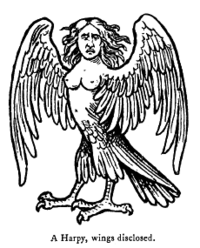In March 2010 I posted the image of a New Yorker Cover (October 18,1969),by
Saul Steinberg, in which the name of Nabokov is interspersed with
a hundred others. For Nabokov, "There
is magic in every penstroke and curlicue of the
delightful diploma that Saul Steinberg has drawn for my wife
and me."* John Updike, who equally admired Steinberg,
said: “Like Vladimir Nabokov and Louis B. Mayer, Steinberg is a
discoverer of the United States.”***
Also Alfred Appel mentions Nabokov and Steinberg "The "two plots" in Nabokov's puppet show are thus
made plainly visible, describing the total design of his work, which
reveals that in novel after novel his characters try to escape from
Nabokov's prison of mirrors, engaging in a struggle toward a self-awareness that
only their creator has achieved by creating them--an involuted process
which connects his art with his life, and clearly indicates that the author
himself is not in this prison, but is its creator, and is above it, in
control of a book, as in one of those Saul Steinberg drawings (greatly admired
by Nabokov) in which a man is seen to be drawing the very line that gives him
"life," in the fullest sense." ***
Quite recently, while going through a collection of NY cartoons, I found
two other Steinberg productions representing strange female birds enjoying
their tea or a ciagarette, which I couldn't fail to relate to Nabokov's
mythological bird "Sirin." (but Steinberg's might very well have been old
new-yorker harpies!!!)
...................................................................................................................................................................................................................
* - Anniversary notes, SO
** - In a different assessment, Steinberg's admiration
for Nabokov is almost used to recommend his versatile genius:
The World According to Steinberg by Red Grooms December 06, 1992:
"THE DISCOVERY OF AMERICA" By Saul Steinberg. Introduction by Arthur C. Danto.
Illustrated. 208 pp. New York: Alfred A. Knopf. $50.
The art goes from the
whimsical to recent work of almost brutal power, art that I think of as
Expressionist. There is tremendous adventure in this book. Mr. Steinberg
responds so intensely and deeply to what goes on around him that the pictures
change in front of your eyes; they range from the spiky to the grim to some that
are images of philosophical peace in scenes of California made in the late
1980's.
This man has made people smile so often that we forget his
seriousness. In fact, even in this book he can make us forget it for a moment.
He includes what may be the most famous American drawing, the view of the world
in the eyes of a New Yorker, the one looking west from Ninth Avenue in which the
whole world is only about as big as a couple of Manhattan blocks; then, if you
turn the page you find he can mock himself, for he drops all the sophistication
and shows you the city much like a real estate agent's path through it. But
under all the amusement he is a very serious man. Also a man of great
intelligence -- I think probably the smartest American artist of the century.
He knew Vladimir Nabokov, and he loves Nabokov's writing; that tells you
something about his art. To a man with that kind of penetration, society is not
always so funny. It must be difficult for someone so intelligent not to be
hard on people. And he can be very hard, but on society, not on people. If you
look at a couple of pictures of Las Vegas in this volume -- a 1985 crayon
drawing of a woman who is all head, legs, purse and arms at a slot machine, and
a 1982 kaleidoscopic overview of Vegas -- you can see that he enjoys vices when
people are being just all-out bad. But he definitely does not like disorder in
society, the kind that robs people of the freedom to be bad or good.( 2011 The
New York Times Company)
*** - TNR
Nabokov's Puppet Show, Part II January 21, 1967
 the two other images, of a "sirin", are also
found in wikipedia.
the two other images, of a "sirin", are also
found in wikipedia.